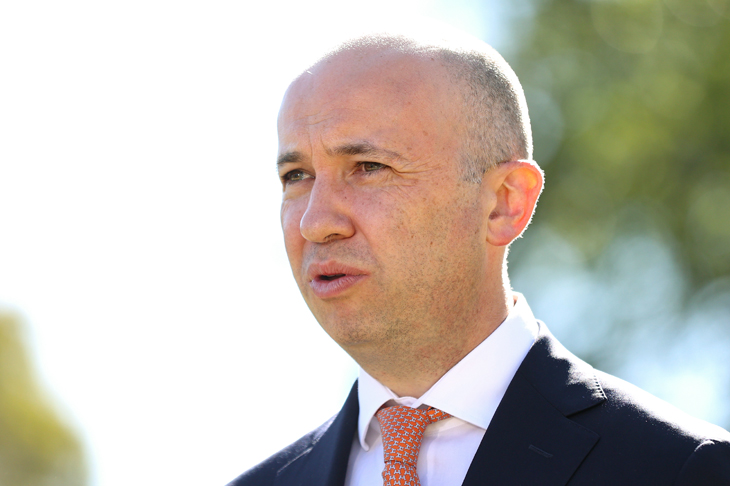To borrow from Virgil’s classic Trojan War poem, Timeo politicos et dona ferentes. I fear politicians, even those bearing gifts.
Last month’s Commonwealth Budget was a broad replica of the previous fifteen-plus budgets. Ill-disciplined spending was served, seasoned generously with waste and a side of electoral pork. But as bad as the Commonwealth’s levels of debt and deficit, state budgets are in even worse shape.
The NSW government is budgeted to double its debt to $106 billion in the four years to 2025. The Victorian government is only planning a 50 per cent increase to $155 billion. Queensland plans a similar 50 per cent increase to $34 billion. These on top of the Commonwealth’s projected gross debt of $1,091 billion in 2025. A billon here and a billion there and soon you are talking real money.
Most dispiriting is that this debt is flowing into an environment of increasing interest rates requiring higher service costs. But rather than undertake the fundamental work of spending reform, our governments are on an endless quest for more revenues.
In the four years to June 2021, total Commonwealth, state and local government revenue increased by a compound average rate of 3 per cent per annum whereas spending increased by 8 per cent. There is no fair share of tax that would ever bridge such a gap.
In response to this fiscal indiscipline, tax reform is regularly suggested. But where once tax reform was about improving the efficiency of the tax system by cutting and spreading the overall tax burden within an envelope of neutral or reduced revenues, nowadays tax reform is shorthand for tax increases.
With no hint of irony, our governments want to improve the efficiency of the tax system all to fund an increasingly inefficient spending system.
At the state level, land tax reform is the final frontier. The dream of state governments is to swap one-off stamp duty for a perpetual land tax. Presented as anything from a productivity measure to a housing affordability measure, land tax reform is no more than a mechanism to extract evermore tax.
Instead of addressing NDIS and Medicare fraud and waste, (estimated at a combined $14 billion per annum), or tackling fraud and waste elsewhere, governments demand more tax revenue to flow into the ever-leaky bucket.
Land tax reform was recommended by the 2010 Henry Tax Review. Henry stated that, ‘Stamp duties are a highly inefficient tax on land, while land tax could provide an alternative and more stable source of revenue for the states’. Tax collection efficiency and government revenue stability apparently take primacy over the general welfare and economic prosperity of Australians.
Supporters of a stamp duty for land tax swap like to point to the ACT where it has been implemented. In 2012, the ACT government commenced a 20-year program to ‘modernise’ its taxation system. Several taxes were promised to be abolished, including property transfer taxes. It was also promised that the reform would ‘not increase the overall tax burden on the ACT community’. Current Commonwealth Finance Minister Katy Gallagher was the ACT’s treasurer at the time.
Outside the corridors of government, the test of policy is what it delivers, not what it promises, and halfway through its plan, the ACT government is collecting double the amount of property taxes with total receipts increasing from $0.6 billion to $1.2 billion over the ten years to 2021. And despite the commitment to abolish property transfer taxes, stamp duty revenues have increased by 25 per cent with no indication they will ever be eliminated.
Meanwhile, the NSW government has just introduced its Property Tax (First Home Buyer Choice) Bill into Parliament. If passed, this law would give first homeowners the choice of paying upfront stamp duty or a perpetual land tax. In his second reading speech, NSW Treasurer Matt Kean stated that, ‘This legislation is founded upon a cornerstone value of this government – the freedom to choose’.
A peculiar emphasis of values given some of the NSW government’s recent policies. Notwithstanding, this bill would be a first step towards an ACT-style property tax system ‘modernisation’.
In support of land tax reform, many nice sounding reasons are presented, but with little evidence. One common argument is that stamp duty is a barrier to labour mobility because high switching costs make it expensive for people to move to where are the jobs. Yet a 2020 OECD analysis studied declining labour mobility in the US, a country with perpetual property taxes. The OECD concluded that, ‘the decline in job mobility over time is driven mainly by hires from nonemployment (unemployed)’. Land and property taxes were not once mentioned.
As a matter of collection efficiency, land tax also struggles. Land tax is assessed on the unimproved value of land, but most Australians buy homes and not just land. To strike tax assessments, an army of valuers is required leaving assessments subject to the judgment and caprice of individuals. This would be an invitation for corruption, political interference and a significant increase in judicially adjudicated valuation disputes. Although mass valuations are currently used for rates purposes, under a land tax system, valuation disputes would likely significantly increase.
If good policy is good politics, a stamp duty for land tax swap is both bad policy and bad politics.
According to NSW Treasury, ‘Currently, owner-occupiers hold around 67 per cent of the private dwelling stock in NSW’. Treasury also estimated that a land tax for stamp duty swap ‘would increase home ownership by about 6.6 per cent in the long run’. Aside from the immodesty of such precision in modelling behavioural impacts from a complex change, it misses the obvious. That 67 per cent of owner occupiers, increasing to 74 per cent ‘in the long run’, who currently pay no annual land tax would be required to do so. As Sir Humphrey might suggest, a courageous decision.
The ultimate property market outcomes of land tax reform are uncertain, but revenue outcomes are not. A stamp duty for land tax swap would make it significantly easier for future governments to increase receipts as has occurred in the ACT. And increasing land tax revenues does not require a simple increase in rates. Governments can quietly inflate land values and receipts through means such as slowed land release, complex development requirements, and increased immigration.
Australians should be wary of politicians bearing gifts. After all, it is we who are footing the bill.
Got something to add? Join the discussion and comment below.
Get 10 issues for just $10
Subscribe to The Spectator Australia today for the next 10 magazine issues, plus full online access, for just $10.
You might disagree with half of it, but you’ll enjoy reading all of it. Try your first month for free, then just $2 a week for the remainder of your first year.














Comments
Don't miss out
Join the conversation with other Spectator Australia readers. Subscribe to leave a comment.
SUBSCRIBEAlready a subscriber? Log in